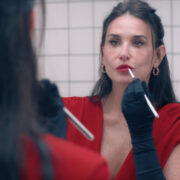Born Sexy Yesterday: The Perverse Male Fantasy Nobody Is Addressing
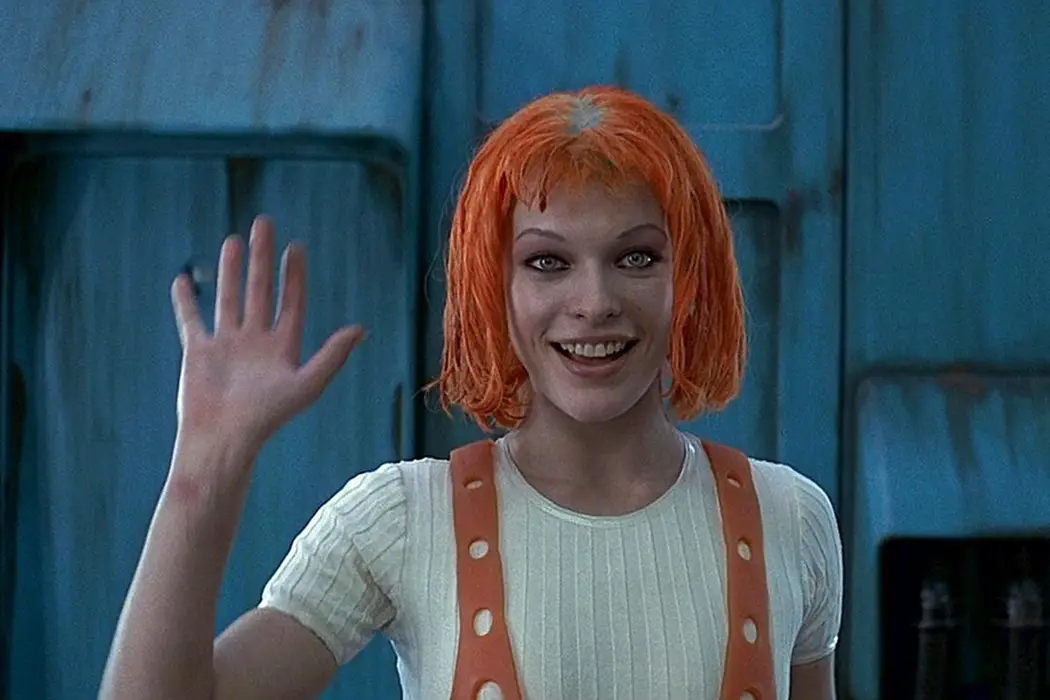
Rachael Sampson is a Yorkshire screenwriter and film critic. She…
Born sexy yesterday – the movie motif virtually unknown to the conscious mind which has an uncomfortable and troubling complex. Born sexy yesterday (BSY) is the common sexual fantasy depicted in films and television shows (created by men and for men), around female characters that exude sex appeal, but other than their physical aesthetic, they mimic the behaviours, intelligence and attitudes of a young child. This trope has been around for decades, but only recently has it started to be consciously understood.
In 2017 the YouTube channel Pop Culture Detective made a video highlighting the concerning trope, drawing their audience’s attention to the broad range of films that include it. These films are rather deviant, as they all have a card up their sleeve to argue with those who disapprove of their sexist and slightly paedophilic portrayals: the women in these exploits are ultimately the saviours/heroines of the narrative – a feminist façade. This style of character is so common, but has simultaneously slipped under the radar in terms of its radiating message.
It’s time to remove the rose-tinted glasses and see these characters for what they truly represent, and why this trope is almost never seen within male characters.
Born Sexy Yesterday
The Pop Culture Detective named this style of character after the literal and figurative meaning, as well as the 1950’s romance film Born Yesterday – a movie where two men educate a “stupid” ex Vegas showgirl (Melanie Griffith). To their surprise, Griffith sucks up knowledge like a Henry hoover and outsmarts them all. Commonly seen within the sci-fi genre, this character is naive, whimsical and innocent; traits fundamentally present in children. This archetype is a paradox, as the YouTube channel best describe these women as “profoundly naive” yet “unimaginably wise” (words taken from Tron: Legacy in relation to Quorra).
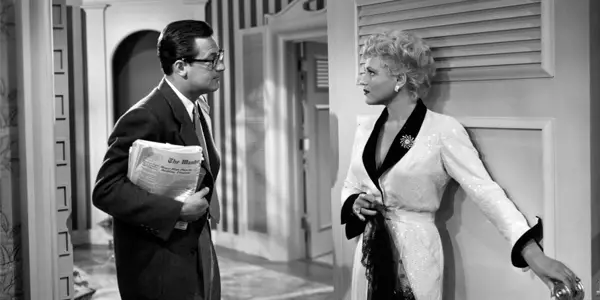
In some narratives like Tron: Legacy, Ex Machina or The Fifth Element, these women have literally been man-made, which is why they are all intelligent, physically strong, sexualised and blissfully unaware of their desirability. An attractive Frankenstein’s monster, or a walking poster girl for western beauty ideals. Aside from their insane intellect and carnally driven aesthetic, these women have a social disconnect, meaning they need educating on the real world – this basic knowledge is essential in life yet its simplicity means it can be provided by anyone (such as why people eat food, or what a car is, etc.)
Usually, their male creator or the man who takes them under his wing becomes the love interest, but since they also provide them with an education on sex and romance, it makes the dynamic incredibly uncomfortable and perverse because they are in a sense, their father. As these women are disconnected from reality and aren’t aware of their sex appeal, it subsequently means that they will fall for anyone – even the socially awkward, spotty, Dungeons and Dragons fanatic that lives in the basement and is hooked up to a Mountain Dew drip (more commonly known as: the creator of the trope). One could say this trope was cleverly constructed by the awkward male nerd, so he can finally get the golden girl on screen.
I Am Your Father
The “father” figure is unsatisfied with the women on earth; he disregards his equals in terms of love and relationships and quite literally reaches for the stars and plucks a mythical/sci-fi heroine for himself. He moulds her into what he wants as she is a blank canvas, then wows her with his (minimal) knowledge on the world. Consider the male protagonists in My Stepmother Is An Alien and Splash for example.
Born Sexy Yesterday is by no means a modern movie motif; it is heavily present in Japanese anime, indigenous exploration and classic Hollywood science fiction films like Outlaw Star, The New World and Forbidden Planet. Consider Forbidden Planet; Alta (Anne Francis) is tricked into kissing John (Leslie Nielsen) through her naivety. He tells her it’s important for health (which parallels grooming tactics).
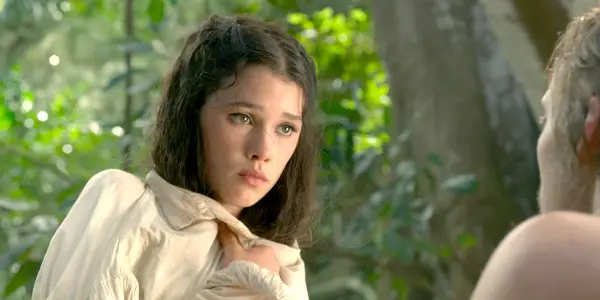
This character comes in a variety of forms – the pixie/dream girl/fairy haired/majestic mermaid/computer generated beauty, is ultimately a child trapped in a woman’s body. Consider the most notorious example of Born Sexy Yesterday: Leeloo in The Fifth Element. Leeloo acts and babbles just like a baby, she is constructed to be “perfect”, naive and whimsical, and is deliberately portrayed in a sexualised light, however she is completely unaware of this. These characters tend to be masters in specific fields, typically through their intellect or a form of combat to draw the stereotypical heterosexual male in even more.
This relationship dynamic is even prevalent where one would wish to see it the least: Disney films such as The Little Mermaid, Pirates of the Caribbean: On Stranger Tides, Enchanted (and Tron: Legacy). These mermaid/pixie dream girls are captured/washed up on land and begin to find their feet (and in Ariel’s case – quite literally) through the guidance of men. Not only do these women behave and have the minds of children, but they are also always depicted as virgins with no previous sexual experience. Innocent and virtuous, yet erotic and heavily sexualised. BSY women are walking contradictions.
Where Are The Male Equivalents?
It’s no surprise that there is an imbalance in BSY when it comes to the male majestic, pixie/computer generated dream boys. As mentioned earlier, this is a trope designed to gratify the heterosexual male viewer, as they are the ones who implemented it. It could be argued that films like Big, Edward Scissorhands and The Shape of Water provide Born Sexy Yesterday within male characters, and they do have a few comparisons such as the characteristics of naivety and a social disconnect; however these characters are not presented like their female counterparts in terms of sexuality.
In Edward Scissorhands, Edward (Johnny Depp) learns about life through a sheltered existence and ends up falling in love mutually. He is never tricked or deceived in love, and Kim (Winona Ryder) does not take sexual advantage of him. The love interests fall in love with these boys/men in spite of their inexperience, not because of it.
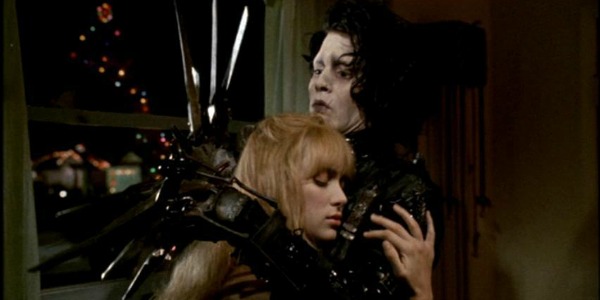
All the so called male equivalents manifest as inexperienced/adolescent boys, and when it’s stated like that, it doesn’t seem so appealing to have a sexual interest in them. These men are not naked and objectified, their storyline doesn’t surround sex and their ineptitude is comical, not pitiful or undermined. There are only a few outliers that can be applied to BSY males because BSY is directly connected to masculinity (with a deep-rooted insecurity around power, sex and sexuality).
Potential examples are: George of the Jungle, Tarzan and The Rocky Horror Picture Show. In relation to the Born Sexy Yesterday jungle men, they aren’t depicted as innocent or naive; they are brutish, animistic and exude dominance, and as for The Rocky Horror Picture Show, it can be said that it’s a rather weak example since all the characters in that film are heavily sexualised, not just Rocky.
When it comes down to highlighting this trope in female characters, the list is endless: Star Trek, Sheena, Planet of the Apes, Passengers and Fifty Shades of Grey – some of these examples play around with the trope and use it to one up the obvious sexism by subverting the initial intentions, but before the subversiveness, the trope is undoubtedly portrayed – clear as day.
Born Sexy Yesterday: Conclusion
Knowing the conscious reasoning behind BSY, it will now crop up in a variety of different narratives – it’s impossible to miss. Television shows are also just as guilty of utilising this motif; look at Daenerys and Viserys in season 1 of Game of Thrones, Mike and Eleven in Stranger Things, or, returning to the creator of the trope: the geeky, Dungeons and Dragons fanatic who lives in the basement. This nerdy stereotype sounds just like the main characters in The Big Bang Theory. Penny (and the special guest female stars) demonstrate a lot of BSY elements, and Leonard, Howard and Co. consistently take on the powerful creator role.
No matter how archaic this trope is deemed, it is still very much alive and kicking in the 21st century. Patty Jenkins‘ 2017 Wonder Woman was the strong feminist superhero movie everyone was impatiently waiting for, but even then, Dianna (Gal Gadot) is sexually inexperienced, unaware of her sex appeal and is disconnected from the real world and needs “educating” by Steve (Chris Pine). Don’t forget that she was created in the comic book world by and for men also.
This trope stems from male insecurity; the obsession with male dominance and exuding power and masculinity over an innocent girl. Incorporating BSY within genres such as sci-fi and fantasy, validates the reasoning behind a young girl being trapped in a woman’s body. These far-fetched, fictitious worlds excuse the very real sexism, and because of these narratives, audiences simply accept it. Consider Woody Allen‘s Sleeper – of course a man with such a troubling history regarding paedophilia would create and star in a film where he wakes up in the future and happens to be the only man left on earth who remembers how to have sex.
By debasing women and removing other men/potential threats from the story, they are able to rebel against the societal issues and insecurities around their own gender roles within fiction. Putting others down to make oneself feel better is a primary school tactic. Leave those attitudes in the playground, as well as the little girls.
Which other films subvert and/or include the Born Sexy Yesterday trope? Share your thoughts and comments!
Does content like this matter to you?
Become a Member and support film journalism. Unlock access to all of Film Inquiry`s great articles. Join a community of like-minded readers who are passionate about cinema - get access to our private members Network, give back to independent filmmakers, and more.
Rachael Sampson is a Yorkshire screenwriter and film critic. She often finds herself daydreaming about Andrea Arnold's filmography or crying over The Graduate.











